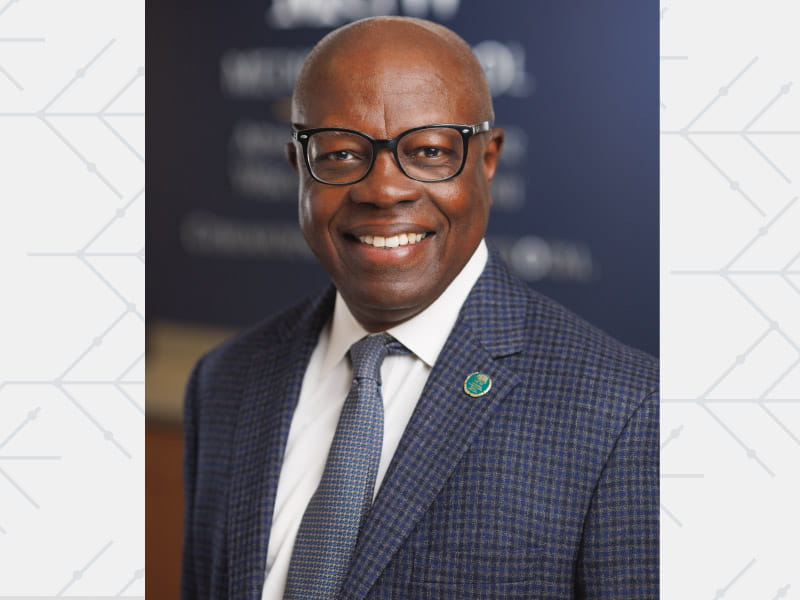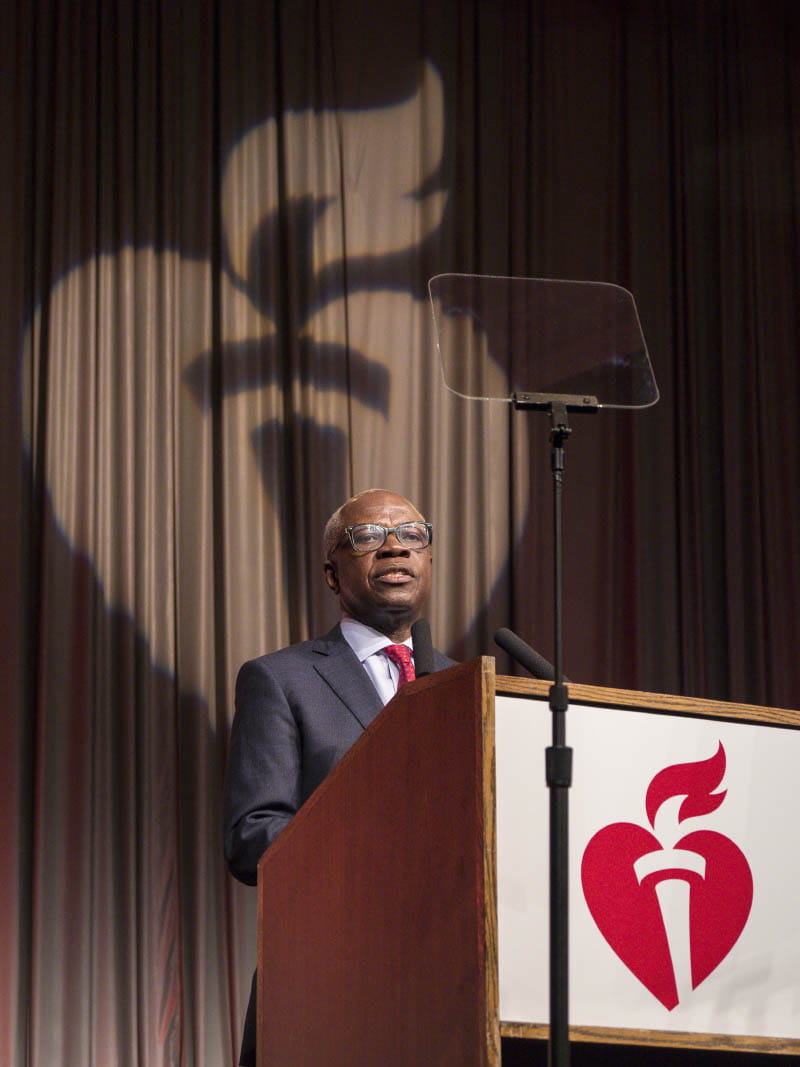Devotion to AHA science are hallmarks of this Gold Heart awardee

During the year that Dr. Ivor Benjamin served as president of the American Heart Association, one of his proudest moments was helping establish a $43 million initiative aimed at finding new ways to improve brain health and cognitive impairment.
Five years later, that work — funded by the AHA alongside the Paul G. Allen Frontiers Group and others — has already generated results. In fact, two of the three sites have wrapped up their research and the other has reached the midpoint of an eight-year study.
And guess who has remained plugged into it all, monitoring every aspect as part of the oversight committee known as the Joint Leadership Group … even though he's a cardiologist, not a neurologist?
Dr. Ivor Benjamin, of course.
Benjamin's ongoing commitment to this project is typical of his devotion to the American Heart Association. It's among the many reasons he's receiving the Gold Heart Award, the organization's highest volunteer honor. He will be recognized on Wednesday, June 14 during a virtual ceremony that is scheduled to begin at 6 p.m. Central and is open to the public.
"Those of us who love and adore the American Heart Association, so much of what we do is not driven by some expectation of receiving an award," Benjamin said. "We do it because we're committed to the broader tenets of the organization and because of the amazing esprit de corps among the volunteers, and between the volunteers and the professional staff. I feel so very blessed and fortunate to be part of all this."
Benjamin's connection to the AHA dates to 1997, when the organization provided his first research grant. Within a few years, he was helping select prize winners and articles for scientific publications. He ramped up his roles on the local, regional and national level, ultimately serving as president in 2018-19. He continues to hold many pivotal leadership duties, including his newest: representing the organization on the board of the World Heart Federation.
"Ivor is a champion of global health as well as guiding force for diversity and inclusion," AHA Chief Executive Officer Nancy Brown said. "Everything Ivor does — as a physician-scientist, as a mentor and particularly as an AHA volunteer — he does it distinctively. And with a smile."
When Benjamin received his first AHA grant, he was at the University of Texas Southwestern Medical Center in Dallas. He left in 2003 to become division chief of cardiology at the University of Utah. A decade later, he took on his current job, director of the Cardiovascular Center at the Medical College of Wisconsin.
In 2009, he received a crowning achievement in his research portfolio, a $2.5 million Pioneer Award from the National Heart, Lung, and Blood Institute.
The money went toward a study of how certain inherited modes of heart failure contribute to protein misfolding conditions and the extremes of oxidative metabolic stress, known as reductive stress. He also studied the fact that those inherited modes of heart failure share similar features of neurodegenerative disorders.
So when the AHA-Allen Initiative was coming together, Benjamin brought more to the talks than merely the perspective of the AHA's president, or that of a cardiologist.
Alzheimer's is a neurodegenerative disease that's attributed to protein misfolding and protein aggregation, "so the initiative was somewhat of an extension of my scientific journey," Benjamin said. "My background and perspective allowed me to make a contribution toward informed decisions."
Other highlights of his AHA career include organizing the first Annual Symposium of the American Heart Association Council on Basic Cardiovascular Sciences, serving as a founding member of the Journal of the American Heart Association, and serving on the editorial boards of Circulation and Circulation Research.

He previously served as chairman of the Science Advisory and Coordinating Committee, the Research Committee, the Manuscript Oversight Committee, the International Committee and the Scientific Publishing Committee.
Among all the tasks in all those roles, one particular challenge is an especially fond memory for Benjamin — the times when the Scientific Publishing Committee selected a new editor-in-chief of a flagship journal.
"Those appointments often exceed a decade, so it's a pretty weighty decision that you're making — not only for the organization, but also for the entire scientific community," he said.
Asked why he's taken on so many roles, Benjamin broke into his infectious laugh and said, "How do you say no to the AHA?"
Then he explained why he believes he gets more than he gives.
It starts, he said, with the AHA being a melting pot of specialists "from basic fundamental biology all the way to population health, and more importantly, implementation science and community engagement."
"I think that leads to better policymaking and better decision-making," he said. "It also keeps you constantly being a student."
In addition to being a lifelong student, Benjamin is also a longtime mentor — at the various institutions where he's worked, within the AHA and beyond.
He values paying it forward partly because of his own experiences as a mentee to Dr. Bernadine Healy, a cardiac pathologist who also was a former AHA president and the first female director of the National Institutes of Health.
"My very first published paper was in Circulation, and it was a study on human hearts done in her lab," Benjamin said. "Then COVID-19 comes along and, lo and behold, I'm studying human autopsies and discoveries made with my first-year medical students were published in the Journal of the American Heart Association. That is a very beautiful, full circle."





